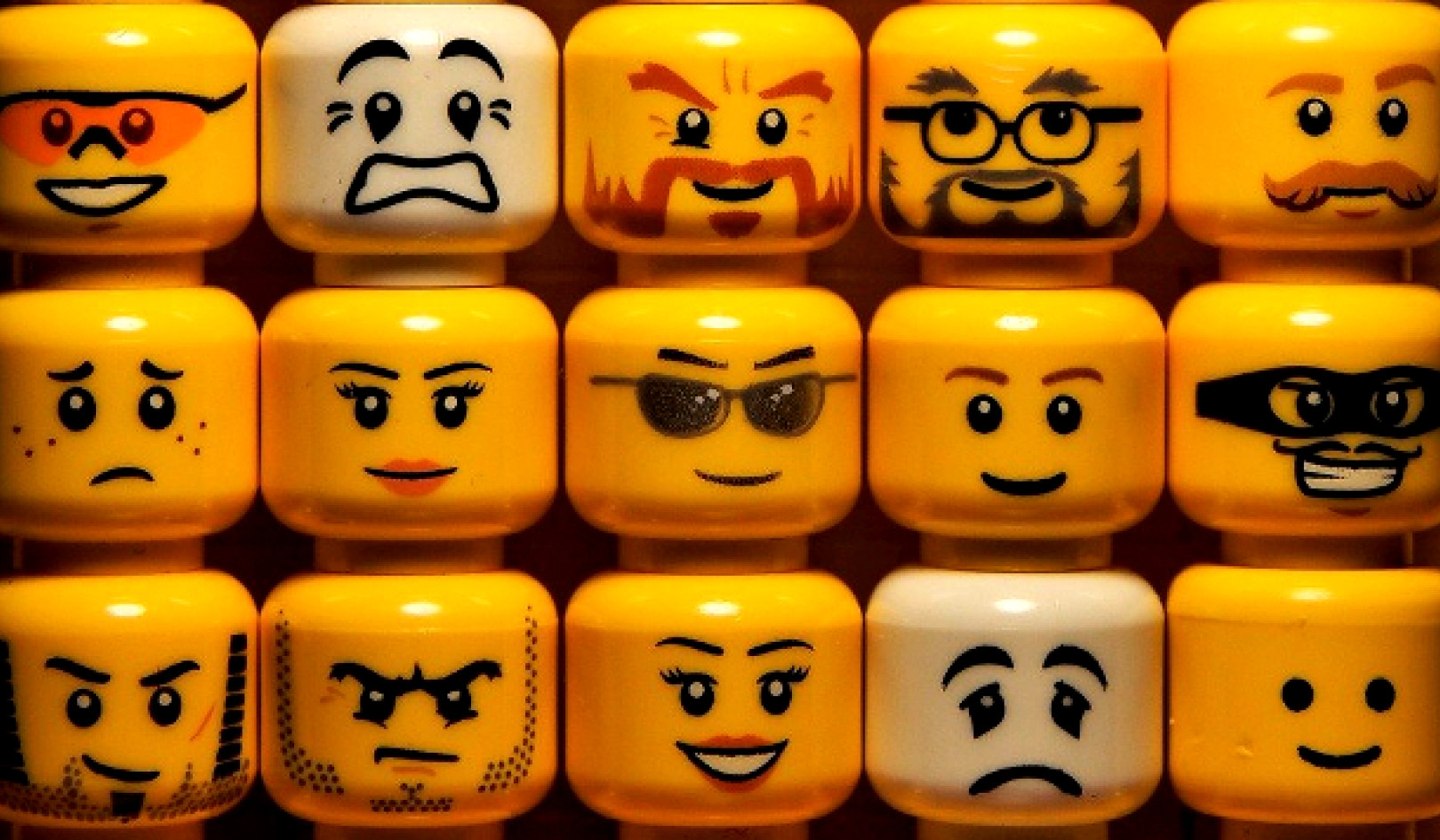
Image by silviarita
In the classic comic strip Li’l Abner, the character Joe Btfsplk constantly has a dark rain cloud following him wherever he goes. Do you ever feel like that? The rest of the world seems sunny and fine, but that character can’t escape the nonstop pouring rain.
That’s what depression and other mental illnesses are like: all-consuming. But unlike the cartoon, there’s nothing funny about it.
However, even the most severe mental issues are treatable. Therapy and medication are one type of treatment, and what’s best depends on each person, their issues, and the advice of doctors. Another form of treatment is to create a healthier lifestyle. Lifestyle changes adjust the way you live every day in order to keep depression at bay and reclaim your life.
Depression and Anxiety Are Diseases
Depression and anxiety are diseases, and like most diseases, your lifestyle can affect them. Both your body and your brain require proper care and fuel, which is what a healthy lifestyle provides. Think about it: If you had heart disease, would you eat hamburgers and fries and expect to get better? No. To get better, you’d eat better, exercise more, and so on. It’s no different with mental illness.
Good lifestyle habits can help your brain function optimally. They won’t “cure” depression, but they help you cope with its symptoms and minimize the impact and duration of depressed episodes. Like an athlete, the right lifestyle makes you emotionally stronger and more resilient.
Unfortunately, depression has two best buds: apathy and lack of energy. These make it hard to do anything. If this describes you, be patient with yourself. Celebrate each accomplishment, and don’t give yourself a hard time when you slip up. Take small steps, and remember that each step counts. If you take a few positive steps each day, you will find yourself making progress and feeling better — slowly but surely.
The lifestyle strategies in this chapter are tools to help you cope with any psychological or emotional issues and to empower you to live a healthier life. That said, if you or someone you know has depression or any other mental health issue, these tools are only a supplement to professional treatment — not a replacement.
A “healthy lifestyle” includes all the things you do to help yourself feel and live better. But you can’t overcome depression all by yourself. And if there’s one message I hope you take from this book, it’s that it’s okay to ask for help. That begins with talking to and getting help from those closest to you: your parents, teachers, friends, and so on. But this also often includes getting help from doctors and therapists. That said, the ultimate success of any treatment plan depends on the individual, who must embrace the plan and make the necessary lifestyle changes to support it.
Tips For A Healthy Lifestyle
Move Every Day
When you’re depressed, just climbing out of bed can seem utterly impossible, let alone working out. But exercise is a powerful fighter of depression and anxiety and one of the most important tools for relieving symptoms. Exercise increases your body temperature, which helps produce a feeling of warmth and releases endorphins, the feel-good chemicals in your brain that help improve mood. Exercise also helps prevent relapse once you’re well.
Any type of movement can make a difference; find something you enjoy so you’ll stick with it. It can be skateboarding, walking the dog, or dancing to a favorite song. Even a ten-minute walk can improve your mood. Work your way up to sixty minutes of exercise per day (in total, not all at once). Ask a friend or family member to join you; exercising with another person provides support and encouragement.
Eat Well
Here’s an interesting fact: 95 percent of the body’s serotonin (the neurotransmitter responsible for regulating sleep, appetite, and mood) is produced in the gastrointestinal tract. This says a lot about the link between your brain and your gut. People with low serotonin levels are much more likely to suffer from depression, anxiety, and insomnia, as well as exhibit poor impulse control and experience thoughts of suicide. If your gastrointestinal tract isn’t functioning as it should, it’s possible you’re not producing the serotonin you need for a balanced, healthy brain.
You probably already know that what you eat can have a great effect on how you feel. In fact, studies have shown that people whose diets revolve around whole, unprocessed food — like a Mediterranean diet, which is rich in vegetables and seafood and low in grains and dairy — have a reduced risk of depression and other mental illnesses compared to those who eat a diet containing processed foods and sugars. So don’t jeopardize your mental health because of your diet.
Limit the amount of “junk” you put in your body, such as packaged snacks, sugar, energy and soft drinks, and fast food. Instead, eat more fresh fruits, vegetables, lean meats, and seafood. Pay attention to see how different foods make you feel. If you feel better without it, don’t eat it!
Socialize
Feeling isolated from family and friends, and from other humans in general, can have a catastrophic effect on your psychological health. This is why isolation is used as a form of punishment in prison and even a form of torture for prisoners of war. The thing about depression is that its symptoms are cyclical: When you’re depressed, you don’t want to be around people, but isolating yourself just exacerbates depression. When this happens to you, practice having faith; trust that connecting with others will help you feel better. This isn’t just anecdotal; it’s scientifically proven.
Here’s the catch. Social media is no substitute for face-to-face interactions, which are best for reducing feelings of depression. A supportive text or a message from a friend can certainly lift your spirits, but meeting someone in person is best. So accept (or offer) an invitation, attend the school dance, and stay up to talk to your siblings or parents. And if you can’t meet someone, call and talk to them. It certainly won’t hurt, and the evidence suggests it’ll actually help you feel better.
Get Sunlight
I know, I know, spending too much time in the sun increases the risk for skin cancer. Then again, too little sun hurts our mental well-being. The body is an incredible system that regulates itself using hormones and neurotransmitters. Above, I mention how adequate serotonin levels are critical for our mood (and much more).
As it turns out, our bodies are programmed to produce serotonin in the sunlight, and they produce melatonin — the hormone that helps us feel sleepy — in the darkness. So whenever you feel listless, tired, or unmotivated, getting out in the sun can help. In fact, people with seasonal affective disorder — depression caused by lack of sunlight during the winter months — are often treated with light therapy to help them produce the serotonin their body needs to feel better. In a way, we’re like plants — without sunlight, we become listless and wither away.
Make getting outside part of your routine. Put on sunscreen and take a walk around the block, read a book on your porch, or eat your lunch on a park bench. Nature is healing, so enjoy it whenever you can.
Focus on Others
Here’s an interesting paradox: When we focus entirely on our own needs, this often makes us feel worse, but focusing on someone else’s needs makes us feel better. Helping another person can give you a major mood boost. Like exercise and sunlight, it doesn’t have to be extreme — perhaps giving a friend a ride home from school or contributing to a canned food drive.
Studies have shown that people who have compassionate goals (goals to positively influence an-other’s life) show fewer symptoms of depression, have less conflict in relationships, and feel better about themselves. Volunteer, lend an ear to a friend, go to a friend’s concert or game, or shovel an elderly neighbor’s sidewalk.
Vent When Necessary
Holding in pent-up feelings and emotions isn’t healthy, so when you feel like you’re going to burst, do so in a safe way. Sometimes that might mean screaming into a pillow, but more often, the best ways to vent are to write your thoughts and feelings down in a journal or talk to a sympathetic, caring friend, family member, or therapist. If you want, ask the person to just listen, without commenting or giving advice, and then describe what you’re feeling (start with “I feel”). Naming emotions can help you identify negative feelings and depression, which is an important step in treatment.
Once you’ve vented, if you feel safe, give the other person a chance to talk. You never know — they may have some valuable insight that can comfort you or change your perspective.
Get Enough Sleep
There really aren’t exceptions to this rule: Everything seems worse when you’re sleep deprived. That rule can certainly be applied to depression and anxiety. Sleep is another one of those cyclical symptoms of depression: You’re depressed and you can’t sleep, but lack of sleep only makes depression worse, and on it goes.
Avoid Drugs and Alcohol
Depression is a chemical imbalance in the brain. Alcohol and drugs alter the chemistry in the brain. Together, they form a one-two punch that robs you of your most valuable asset — your true self. If you feel the urge to self-medicate, talk to a doctor or a therapist and develop healthy coping mechanisms that help you feel better.
Do Something Fun
Depression could also be called “fun deficiency.” It’s really, really hard to feel down and depressed when you’re having fun. In fact, countless studies have shown that doing something you love can dramatically reduce symptoms of depression. That’s because “fun” triggers the production of dopamine, which controls the pleasure center in the brain. It doesn’t matter what you consider fun — it might be bungee jumping, fishing, or playing games with friends — just do it.
Many mental illnesses (especially depression) undermine the motivation to do anything. So even if you have to force yourself, do something every day that you love. Chances are, once you’re doing that activity, you’ll actually have. . .fun, and as I say, it’s really hard to feel depressed when you’re having fun.
Relax to Recharge
Relaxation is a state in which your body can recharge and rejuvenate, relieving stress and boosting feelings of joy and well-being. Relaxation is different than lethargy, listlessness, and oversleeping, which are common symptoms of depression.
Relaxation isn’t about doing nothing. It’s about actively calming the emotions and clearing the mind to lessen anxiety, improve thinking, and increase energy. Meditation is one of the most common and effective ways to practice relaxation, but yoga is another ideal activity, since it’s all about meditative, gentle physical exercise.
If you can, join a yoga or meditation class; these are both great ways to learn and great ways to incorporate regular relaxation into your life. However, these aren’t for everyone, and you can practice whatever relaxation techniques that work for you.
Try two minutes of deep breathing in the morning, a walk in the woods, or watching the sunset on a park bench. Be creative and curious and explore the best ways to relax and recharge your body and mind.
Challenge Negative Thoughts
Depression in particular puts a negative spin on everything, especially the way you see yourself and how you see the future. That’s the lie of depression: the feeling that bad things will continue to happen for the rest of your life and there’s nothing you can do about it.
When negative thoughts arise, try challenging them. Stand up to the voice of depression and ask, “Is this thought true?” Step back and consider the thought like an objective observer: “Is there another way of looking at the situation or another explanation? Would the situation look the same if I didn’t have depression or anxiety?”
Most of all, ask yourself: “If a good friend had this thought, what would I tell them and how would I help them?” Listen to this other, more compassionate voice. You may surprise yourself as you develop a more balanced perspective.
Develop Healthy Routines
Everyone develops routines and habits. These are the things we do almost automatically every day, in the same way, at the same times — mostly because we did the same things yesterday, and the day before, and so on.
So create healthy habits based on the lifestyle tips in this chapter. For now, don’t worry about changing bad habits; just focus on creating new, healthier routines.
The Future Is Bright
If you currently have or are dealing with a mental health issue, it may be difficult to recognize all the ways your talents and abilities can enrich your life and the lives of those around you. That’s why it’s so important to be able to recognize and identify these issues in yourself or in a friend or family member.
What looks perfect on paper rarely is. Everyone — you, me, everyone — has challenges, disappointments, illnesses, and traumas they deal with every day. When you recognize and address whatever is lurking beneath the surface, it loses power over you, allowing you to become the person you were always meant to be: simply incredible.
Excerpted from the book Beneath the Surface.
©2019 by Kristi Hugstad. All Rights Reserved.
Reprinted with permission of the publisher,
New World Library. http://www.newworldlibrary.com
Article Source
Beneath the Surface: A Teen's Guide to Reaching Out When You or Your Friend Is in Crisis
by Kristi Hugstad Depression and mental illness don’t discriminate. Even in the most picture-perfect life, confusion and turmoil are often lurking beneath the surface. For a teenager in a world where anxiety, depression, and other mental illnesses are commonplace, life can sometimes feel impossible. Whether or not you or someone you love is suffering from any of these issues, it’s important to be able to recognize the warning signs of mental illness and know where to turn for help. This comprehensive guide provides the information, encouragement, and tactical guidance you need to help yourself or others experiencing. (Also available as a Kindle edition and as an Audiobook.)
Depression and mental illness don’t discriminate. Even in the most picture-perfect life, confusion and turmoil are often lurking beneath the surface. For a teenager in a world where anxiety, depression, and other mental illnesses are commonplace, life can sometimes feel impossible. Whether or not you or someone you love is suffering from any of these issues, it’s important to be able to recognize the warning signs of mental illness and know where to turn for help. This comprehensive guide provides the information, encouragement, and tactical guidance you need to help yourself or others experiencing. (Also available as a Kindle edition and as an Audiobook.)
Another book by this Author: What I Wish I’d Known: Finding Your Way Through the Tunnel of Grief
Related Books
About the Author
 Kristi Hugstad is a certified grief recovery specialist, speaker, credentialed health educator, and grief and loss facilitator for recovering addicts. She frequently speaks at high schools and is the host of The Grief Girl podcast and talk radio show. Visit her website at thegriefgirl.com/
Kristi Hugstad is a certified grief recovery specialist, speaker, credentialed health educator, and grief and loss facilitator for recovering addicts. She frequently speaks at high schools and is the host of The Grief Girl podcast and talk radio show. Visit her website at thegriefgirl.com/





























